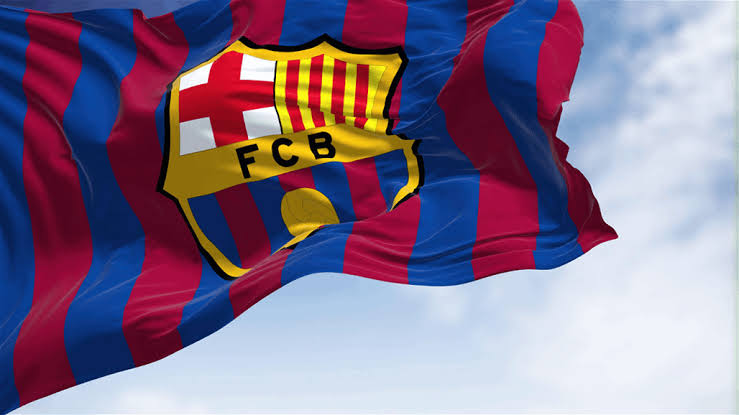Sustaining FC Barcelona’s Legacy
The Financial Powerhouse Behind FC Barcelona: Unpacking the High-Cost Realm of FootballFootball, often referred to as “the beautiful game,” has evolved into a high-stakes, high-cost global phenomenon.
Thank you for reading this post, don't forget to subscribe!At the epicenter of this financial whirlwind stands FC Barcelona, a club renowned not only for its footballing prowess but also for its substantial financial muscle.
Let’s dive into the world of football finance and explore the factors that make FC Barcelona one of the sport’s financial giants.Sustaining FC Barcelona’s Legacy
To understand FC Barcelona’s financial might, one must first dissect its revenue sources.

**1. The Revenue Streams:**
The club generates income from various channels, including ticket sales, merchandise, broadcasting rights, and commercial sponsorships. Each of these streams contributes significantly to their impressive annual revenue, which often surpasses the €1 billion mark.Sustaining FC Barcelona’s Legacy
**2. Commercial Partnerships:**
One of the key contributors to FC Barcelona’s financial power is its extensive network of commercial partnerships. The club has secured lucrative deals with global brands like Nike, Rakuten, and Qatar Airways. These partnerships not only provide the club with financial backing but also enhance its global brand presence.Sustaining FC Barcelona’s Legacy
**3. The Messi Era:**
For over a decade, Lionel Messi was the heart and soul of FC Barcelona. During his tenure, Messi’s on-field brilliance translated into both sporting success and increased revenue. His departure from the club in 2021 marked the end of an era and posed financial challenges as well as an opportunity to reshape the team’s financial strategy.Sustaining FC Barcelona’s Legacy
**4. Player Salaries:**
High-cost transfers and player salaries are an integral part of modern football. FC Barcelona has consistently been one of the top spenders in this regard, with significant investments in star players. Balancing these expenses with sustainable financial strategies is an ongoing challenge.Sustaining FC Barcelona’s Legacy
**5. Infrastructure and Development:**
FC Barcelona’s financial muscle extends beyond its first team. The club has invested heavily in youth development, boasting one of the most renowned academies in La Masia. These investments ensure a pipeline of talent that can contribute to both on-field success and potentially lucrative transfers.Sustaining FC Barcelona’s Legacy
**6. Financial Challenges:**
Despite its financial prowess, FC Barcelona has faced its fair share of challenges, including mounting debt and wage issues. These challenges have prompted the club to reevaluate its financial strategy, focusing on sustainability and long-term success.Sustaining FC Barcelona’s Legacy
**7. The Global Fanbase:**
FC Barcelona’s passionate global fanbase plays a crucial role in the club’s financial power. The club’s worldwide reach has allowed it to engage with fans and generate income through merchandise sales, marketing initiatives, and international tours.Sustaining FC Barcelona’s Legacy
**8. Financial Restructuring:**
In response to their financial challenges, FC Barcelona embarked on a path of financial restructuring. The club implemented cost-cutting measures, including reducing player wages and making strategic transfers to alleviate debt burdens. This shift towards more sustainable financial practices demonstrates the club’s commitment to long-term stability.Sustaining FC Barcelona’s Legacy
**9. The Role of the Camp Nou:**
The Camp Nou, FC Barcelona’s iconic stadium, not only serves as a historic battleground for football but also as a significant financial asset. The club’s home matches are a major source of revenue through ticket sales and hospitality packages. It is also an integral part of the club’s identity, making investments in its maintenance and development essential.Sustaining FC Barcelona’s Legacy
**10. Digitalization and Innovation:*
In the modern era, clubs must leverage digital platforms to engage with fans and maximize revenue. FC Barcelona has been proactive in embracing technology, developing mobile apps, and creating engaging content to connect with its global audience. These initiatives not only generate income but also foster fan loyalty.
. The Financial Fair Play Challenge11:
Financial Fair Play regulations set by UEFA have posed a challenge to FC Barcelona and other clubs in managing their finances. These rules aim to promote financial stability in football but can limit clubs’ spending capacity. Adhering to these regulations while remaining competitive is a balancing act that clubs like Barcelona must navigate.
**12. The Future of FC Barcelona:**
FC Barcelona’s financial journey is one of evolution and adaptation. As the club charts its path forward, it seeks to maintain its status as a financial powerhouse while addressing its economic challenges. The goal is to achieve a harmonious balance between sporting success and sustainable financial practices, ensuring that the club remains a global football icon.In this high-cost world of football, FC Barcelona’s story is one of both financial might and financial responsibility.Sustaining FC Barcelona’s Legacy
As the club continues to evolve, it serves as a compelling case study in how football clubs can thrive in a rapidly changing financial landscape, all while striving to uphold the spirit of the beautiful game.Sustaining FC Barcelona’s Legacy
**13. Youth Development and Sustainability:**
A defining feature of FC Barcelona’s financial strategy is its emphasis on youth development and sustainability. The La Masia academy has been instrumental in nurturing homegrown talent, which not only helps the club save on transfer fees but also bolsters the team’s identity. This approach aligns with the club’s commitment to long-term financial stability and success.
Community and Social Responsibility14.
FC Barcelona recognizes the importance of giving back to the community and society.
The club’s commitment to social responsibility initiatives not only reflects its core values but also strengthens its brand image. It involves investing in local communities, charitable programs, and sustainability efforts, showcasing a more holistic approach to financial power.
**15. The Competitive Landscape:**
The financial world of football is a highly competitive arena, with clubs constantly vying for top talent and success. FC Barcelona must adapt and innovate to maintain its competitive edge. This includes scouting emerging talents, forging strategic partnerships, and exploring new revenue streams.
**16. The Impact of COVID-19:**
The COVID-19 pandemic disrupted the financial landscape of football. Matches played without fans, postponed tournaments, and revenue loss from merchandising and tourism affected clubs worldwide. FC Barcelona, like others, faced financial setbacks but adapted by finding ways to engage fans virtually and reduce operational costs.
**17. Long-Term Financial Viability:**
The financial muscle of FC Barcelona is not just about short-term gains but long-term viability.
The club’s commitment to financial stability, youth development, and a strong global presence positions it as a significant player in the world of football for years to come.
In conclusion, FC Barcelona’s financial strength is a dynamic interplay of revenue streams, strategic partnerships, responsible financial management, and an unwavering commitment to excellence. While it faces challenges and uncertainties, its rich history and global influence ensure that it will continue to be a financial powerhouse in the ever-evolving, high-cost world of football.
The club’s ability to balance the books while pursuing sporting success exemplifies its resilience and enduring appeal in the footballing landscape.
In conclusion, FC Barcelona’s financial might in the world of football is a result of a complex interplay of revenue streams, commercial partnerships, player investments, and a passionate global fanbase.
While the club faces financial challenges, its enduring commitment to excellence on and off the pitch ensures that it will continue to be a prominent figure in the high-cost world of football.




